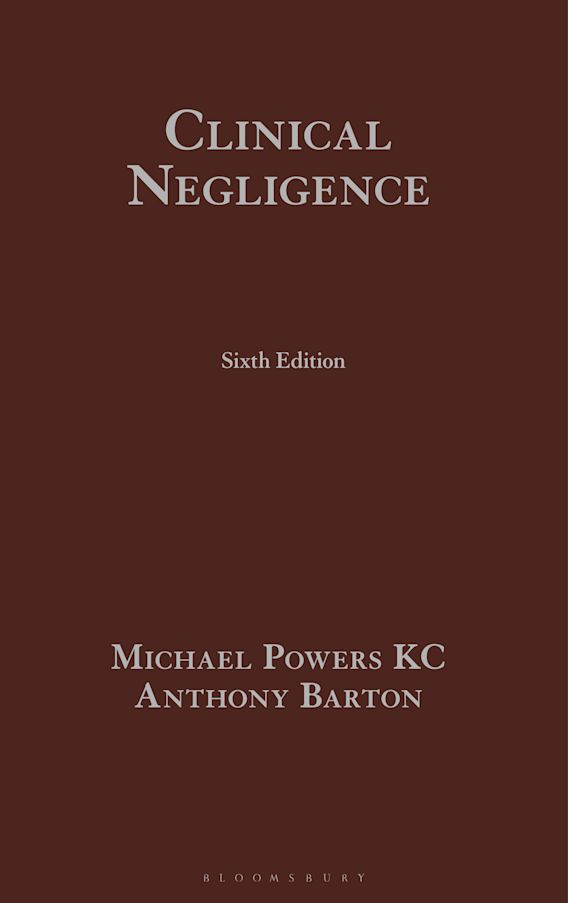Bloomsbury Professional Home
Clinical Negligence
Q & A with Dr Michael Powers KC
What first attracted you to working in Medical Law?
After a few years in practice as a doctor, I decided to read for the Bar as I saw the law as a means of bringing improvements in medical practice. I was called to the Bar in 1979, just as medical negligence claims were beginning to be brought in greater numbers. This was driven by the availability of civil legal aid for such claims, the emergence of solicitors who were focusing on medical work and the then named Action for Victims of Medical Accidents.
What has been the biggest change to medical negligence law since the last edition of Clinical Negligence?
The decision in Paul v Royal Wolverhampton NHS Trust [2022] 2 WLR 917 on secondary victims (the conjoined appeals to the Supreme Court to be heard 16th-18th May). The new Supreme Court cases on the extension of vicarious liability and non-delegable duties, most recently Trustees of the Barry Congregation of Jehovah's Witnesses (Appellant) v BXB (Respondent) [2023] UKSC. The dental cases of Hughes v Ratten [2022] EWCA Civ 107 and Pawley v Whitecross [2021] EWCA Civ 1827 which are relevant to the increasing use of private healthcare and the interesting development in Khan v Meadows [2021] UKSC 21 on the scope of duty.
Do you foresee any significant developments taking place in the area of clinical negligence law over the next few years?
First, the proof of causation. Whilst there continues to be development of the law in this area, there remain impediments to justice such as no compensation for the loss of the chance of a better outcome but for the negligent act/omission where the ‘but for’ causation cannot be established. The decision in Gregg v Scott [2005] UKHL 2 needs to be revisited and a greater understanding of the principles of law and medicine in establishing the link between cause and effect has a long way to go.
Secondly, accepting this is a long shot, there are some circumstances in which a claimant succeeding in proving breach should not have also to prove the loss claimed from the breach. Where, for example, the breach of duty involves a negligent failure to follow a recognised practice designed to avoid the very injury/complication which occurred, it should be for the defendant to prove on the balance of probabilities that it was not his/her failure which caused it.
What is the most challenging aspect of your job?
Whilst it may sound banal, helping patients and relatives of those patients who have died obtain justice: proper and full accountability and appropriate financial compensation for the losses occasioned by negligence. I have been involved for over 30 years seeking justice and accountability in the case of Robbie Powell. Whilst we are still not there yet, a duty of candour (‘Robbie’s Law’) has now been established and very gradually more openness about clinical mistakes is occurring. Those affected by tragedies caused by negligence are particularly keen to hold those responsible accountable. I agree that, unless this happens, lessons will not be learned and other families will also needlessly suffer. Cross-examination of experts provides the most intellectually challenging aspect of being a barrister.

